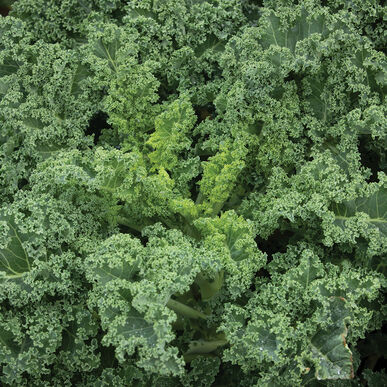Kale Plant
Category: Garden Vegetable Plants

Facts about Kale. "Scientific name for Kale Plant is Brassica oleracea var. sabellica". Kale is a type of vegetable plant of the cabbage family. The leaves of the Kale Plant are green, but some varieties may have purple leaves. If you are yet to try it, well, this could be the time. The green vegetable is packed with high nutrition value that makes it one of the healthiest food in the world. The benefit of having kale in your diet range from healthy skin, strong bones, healthy hair, to good digestion.
Planting kale
Kale is one of the easiest to grow in the cabbage family. Can be planted in spring, so long as you secure the seedlings from extremely cold winds. The plant will, therefore, do well for months before the weather becomes too warm. Kale can also be planted during the fall. Cool weather has been found to bring sweet flavor thereby making the leaves sweeter when they grow in cool weather. Fall is therefore, the most appropriate time to grow kale.
Kale grows well in fertile soil; it is, therefore important to apply fertilizer and manure before planting. This helps the Kale Plant to grow much faster, producing sweet and tender leaves. Kale Plants that receive less than 6 hours of sunlight a day may not be as leafy as those that receive sunlight for longer periods of the day, but they are edible as well.
Kale are easy to plant at a good depth and the recommended spacing. Since they require even and adequate water supply, monitoring the moisture in the soil is very important. Mulching can be done to maintain moisture in the soil as well as keep away weeds.
Uses of kale
Although kale leaves can be used as salads in their raw form, they are best served hot. To preserve their nutritional value, boiling should be avoided, but rather steam or stir fry them. Kale are used as a side dish such as with fish. It is also used as a stew, or you can snip some raw leaves to your chicken or rice.
Nutritional benefits of Kale
There are many benefits that arise from eating kale, but here are just but a few.
• Low in calorie, zero fat and high fiber content. This makes Kale good for digestion and elimination.
• Rich in vitamin K. this is especially important since vitamin K helps in protecting against different forms of cancers. Also responsible for healthy bones and blood clotting.
• Rich in vitamin C. this is important for a strong immune system metabolism, and hydration.

 Back To Category Garden Vegetable Plants
Back To Category Garden Vegetable Plants